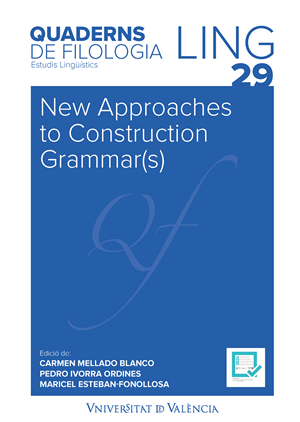Russian discourse markers that highlight the truth of the statements: a corpus-based semantic analysis
DOI:
https://doi.org/10.7203/QF.29.28803Keywords:
discourse markers, čto ni govori, i pravda, pragmatics, modes of usage, presupposition Abstract
Abstract
This research analyzes and compares two near-synonymous Russian discourse markers, čto ni govori (‘whatever you say’) and i pravda (‘truly’), both used to verify the truthfulness of statements within their contexts. Despite their crucial role in communication, their analysis remains incomplete. Using data from monolingual and parallel corpora in the Russian National Corpus (RNC) and Sketch Engine, we identified the unique features of these discourse markers, highlighting both their similarities and differences. Our findings reveal distinctions in their usage across various discourse modes (dialogue, questions, and monologues), the presuppositions they carry, their positioning within statements, and their combinatorial properties.
 Downloads
Downloads
Downloads
Published
How to Cite
-
Abstract9
-
PDF1
Issue
Section
License
Copyright (c) 2024 Paola Cotta Ramusino, Dmitrij Dobrovol’skij, Ludmila Pöppel

This work is licensed under a Creative Commons Attribution-NonCommercial-NoDerivatives 4.0 International License.
 Este obra está bajo una licencia de Creative Commons Reconocimiento-NoComercial-SinObraDerivada 4.0 Internacional.
Este obra está bajo una licencia de Creative Commons Reconocimiento-NoComercial-SinObraDerivada 4.0 Internacional.
Authors who publish with this journal agree to the following terms:
- Authors retain copyright and grant the journal right of first publication with the work simultaneously licensed under a Creative Commons Attribution License that allows others to share the work with an acknowledgement of the work's authorship and initial publication in this journal.
- Authors are able to enter into separate, additional contractual arrangements for the non-exclusive distribution of the journal's published version of the work (e.g., post it to an institutional repository or publish it in a book), with an acknowledgement of its initial publication in this journal.
- Authors are permitted and encouraged to post their work online (e.g., in institutional repositories or on their website) prior to and during the submission process, as it can lead to productive exchanges, as well as earlier and greater citation of published work (See The Effect of Open Access).




